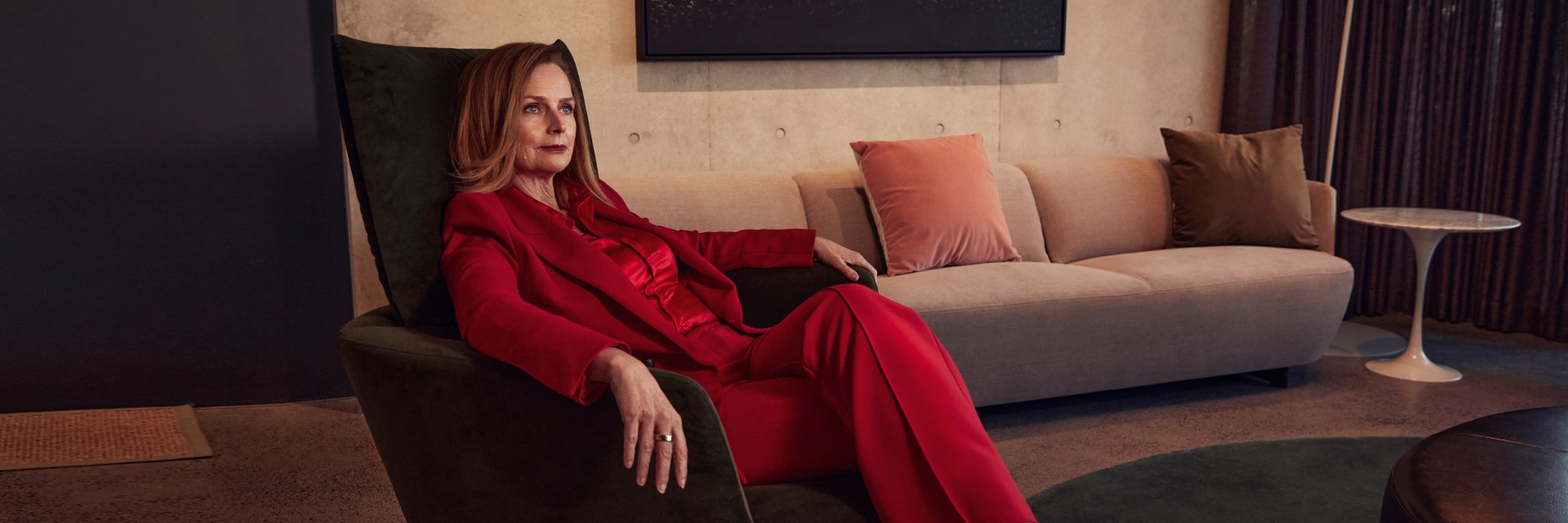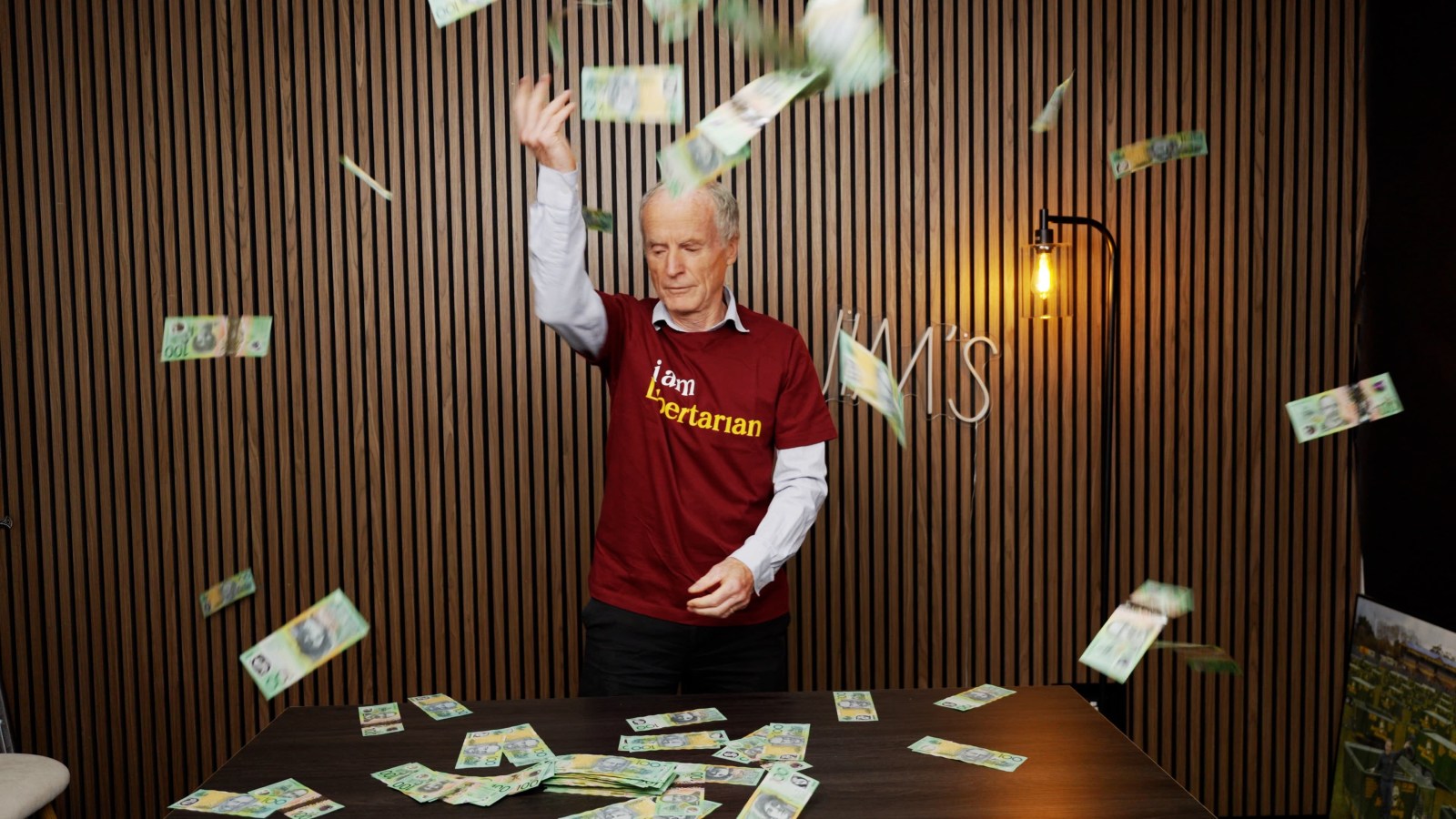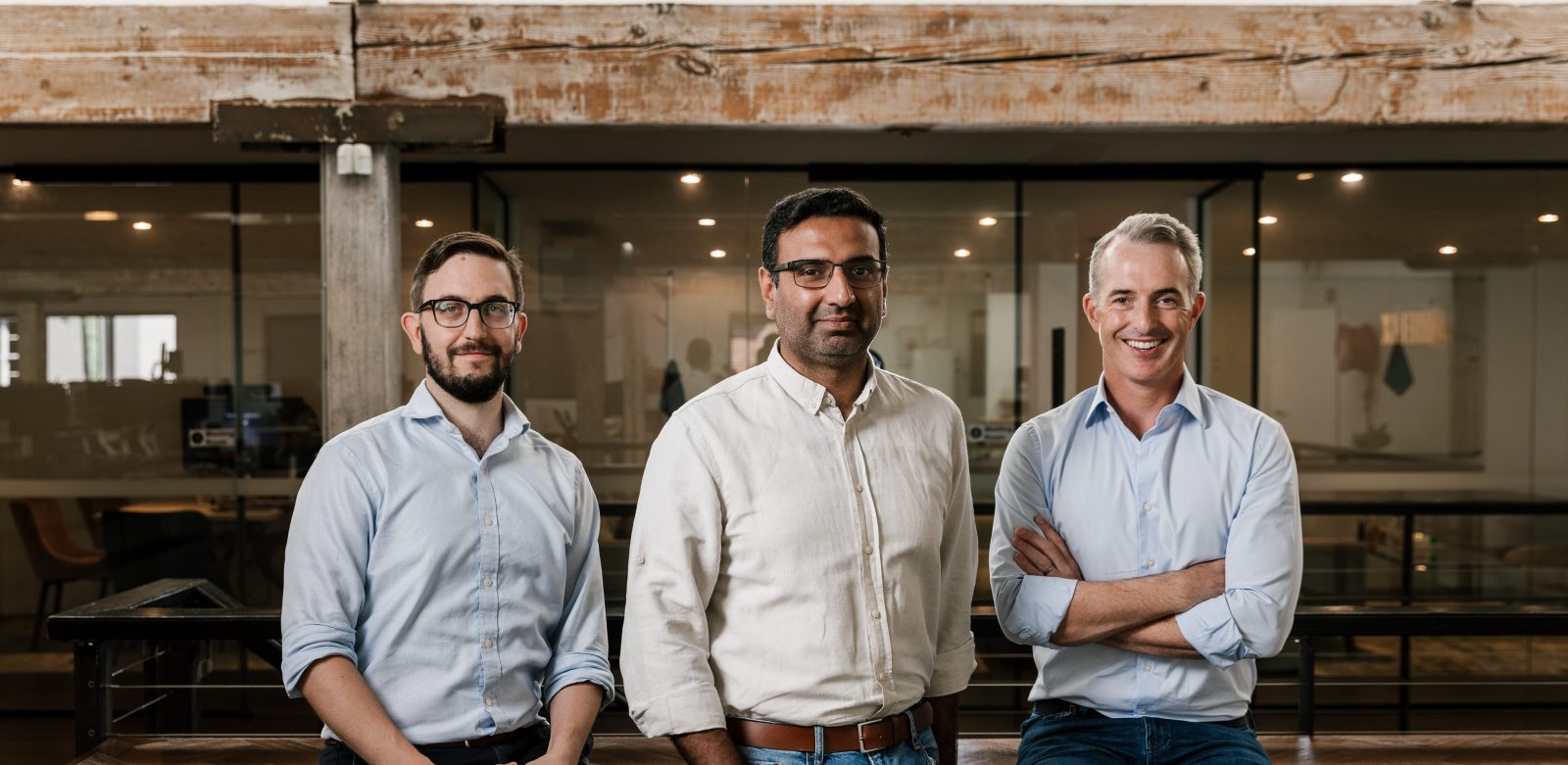Naomi Simson is the founder of experience gifting giant RedBalloon and one of Australia’s best-known entrepreneurs. In 2017, she co-founded Big Red Group, the biggest experience marketplace in Australia and New Zealand. It serves an experience every 18 seconds – the equivalent of 1.5 million a year. The former Shark Tank judge shares the habits and insights that underpin her success.
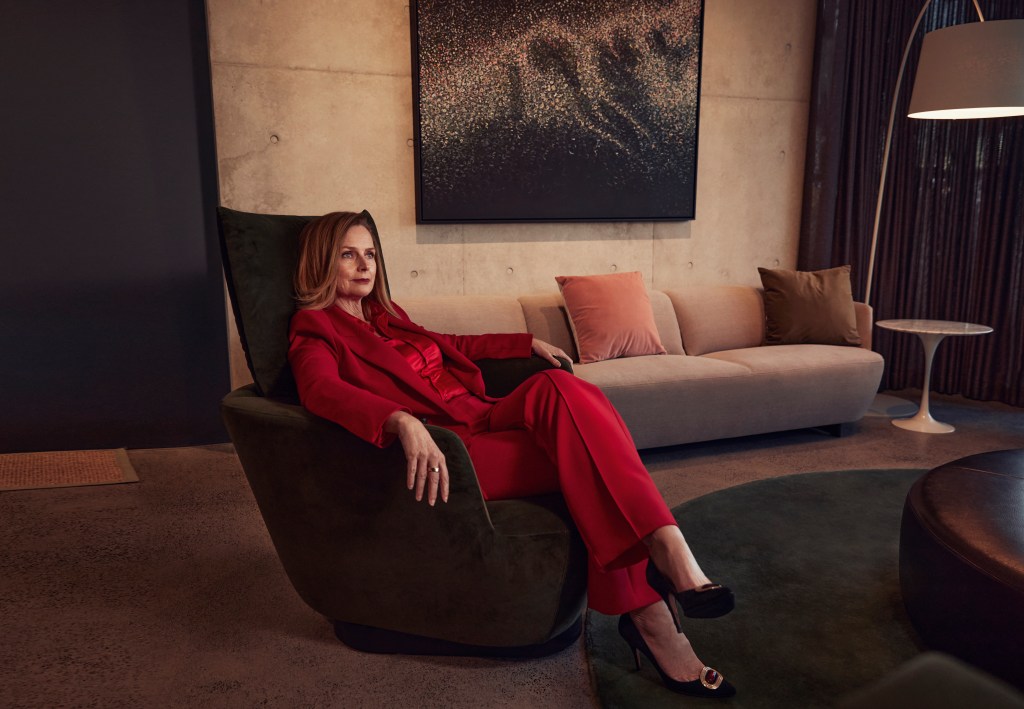
What’s a daily habit that contributes to your success?
When I get out of bed every morning, I do a breathing and pilates program called ‘Kaaiaa’. It’s a moment for me. I started doing it about two years ago, during the second long Covid-19 lockdown in Sydney.
I use an app on my Apple Watch called Mindful Minutes to slow my breathing down to five breaths a minute. I do that during the day in stressful moments, and I do it before bed as well.
I read an incredible book called Breath: The New Science of a Lost Art by James Nestor. He writes about how if you’re a mouth breather versus a nose breather, it can make a big difference to your fundamental health. I’ve had to train myself to be a nose breather.
When your body is flung into a fight or flight mode, if you instantly take a long slow breath in through your nose and out through your mouth, you have told your nervous system you’re okay. Do three or four more slow breaths, and your brain will function normally again. Instead of being reactive, you will be able to say, ‘Is this a sabre-toothed tiger? No – it’s just a dog.”
Is the rest of your morning routine typically calm, or is it frantic?
My mornings used to be frantic. You know, get all the kids out the door. But life changes. Nowadays, I have a calm lead-up to the work day.
This morning was beautiful. I got up, did the kaaiaa.com program, and made breakfast for the family, who just happen to be here at the moment. Then I took my cavoodle Jackford for a walk near the water and enjoyed the beautiful sunshine. I won’t have breakfast until 10 or 11 am. For breakfast, I have ‘athletic greens’, a kind of spirulina and spinach all ground up. I feel very fortunate now because, as a board director, I’m not going into an office in the city daily. I work from home much of the time.
Have you experienced burnout? If so, how did you come back from it?
I haven’t had burnout in the sense of being unable to get out of bed, but there have been times when I’ve wanted to fire myself. I’ve thought to myself, “I can’t believe I did that.” Or, “There’s somebody better to do this job.”
In the past, I was often doing too much. I was always rushing to the urgent. When my kids were little, I was mum’s taxi, the cook – the everything. I used to find personal time by going to the gym at 5.30 am. I was always on. But it is just a moment in time, and it passes.
You have 2.6 million LinkedIn followers, more than most prime ministers. How did you get such a large following, and what are your tips for leveraging the platform?
About ten years ago – and before the word ‘influencer’ had been invented – LinkedIn wanted to launch content. They approached about 100 people worldwide and asked us to write for them. I was one of two Australians. We were given a blue tick and had a lot of authority – though, of course, that has changed since, thanks to ‘Mr Twitter’.
Some of my posts went viral, such as the one I wrote about how addicted we are to our phones. Another was on what I would tell my younger self. That actually became a book called Live What You Love.
In terms of leveraging the platform, I think it’s important to respect other people’s time and the role you play in their life. I don’t write long posts anymore, and I don’t blog. I don’t think that people are reading content the same way they used to. I think there will be a return to quality mastheads because more and more people need to trust the source of their information.
I also think that the way people absorb information is different – audio has become important. I used LinkedIn to promote my podcast. I didn’t think I’d ever do a podcast, and now I’m up to season four of Handpicked. It is like a reverse interview, where small business owners ask me about practical things, like how to increase their prices.
What would you tell your younger self?
To stop rushing to the urgent. There will be another Christmas. RedBalloon is a gifting business, so Christmas is really important. I would start planning Christmas in January. I was always rushing, and I didn’t stop to celebrate the wins.
In those first few years, I was always looking at ways to make me do things faster, whether it was half marathons, weights or work. What I needed was the opposite of that and to put less pressure on my body. Nowadays, I do yoga, Pilates and breathwork. I love painting too.
You were a judge on Shark Tank for the first four seasons. What is a common misunderstanding about what it’s like to be on TV?
Everyone on television are just ordinary people doing the best they can with their craft. They are no more intelligent than anyone else – it’s just what they chose as their job.
I would come off the set on a Monday night and put out the garbage bins. Or I’d think, “Oh no, there’s no food in the fridge for the kids’ lunches.” Just like everybody else does.
I’d find it fascinating that people would ask me whether such-and-such is a good idea. I don’t know! I don’t have the background. I might not be in the target market.
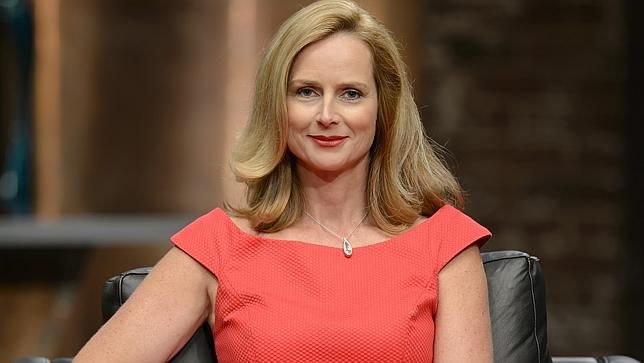
Can money make us happy?
Yes – of course it can. But it’s not the counting of money that will make you happy or sitting there with your piles of cash. Happiness comes from experiences. It is about spending money doing things with your friends and family, whether it’s a dinner out or travelling the world. The other thing is that money gives you security and safety, and you can’t be happy if you’re unsafe.
What does the colour red mean to you?
Red is the colour of passion, and it’s memorable. Years ago, I came out of a speaking engagement and just happened to be wearing red. Somebody said to me, ‘You look really great in red.’
I thought, ‘Okay – it must work.’ I always used to wear red, but now I only wear it for work. There is a certain expectation that I will wear red if I’m onstage or in the media or something. You could say that red is my uniform. I was wearing green yesterday, and nobody recognised me!
If RedBalloon hadn’t turned out as well as it did, what could you imagine as an alternative career?
I probably would have had a corporate career as a marketer within a business. And in some ways, I’ve returned to a corporate career because I’m a director. I’m on the Australian Payments Plus board, an important organisation because it concerns Australian-owned payments infrastructure. I’m also on the board of Colonial First State’s holding company.
I enjoy being on boards because I honestly think I can add value. My commercial experience and being a customer-centric marketer with an HR background give me a different view to bring to those conversations.
So not a painter, then?
No. During COVID, I had a lot more time to paint, and I realised that although painting is my passion and joy, I know it’s not my career. Having to feed my family has always been such a responsibility, and to turn something that is my calm and special place into a commercial outcome is not something I want. I’ve been painting for years, and I take commissions, but I don’t have the pressure to produce or to find customers, and I don’t live in a world of judgment.

What is something entrepreneurs often get wrong?
They think it’s all about them. I don’t believe that a business should be all about one person. A business is an entity, and it changes over time. This is the real problem many founders have: they can’t get out of their own way.
Founders can also believe that they know everything – and they don’t. They might have a certain skillset or enthusiasm, but there’s always somebody cleverer. It’s important to remain curious and not think that you know everything because the moment you do, you are cactus.
A good business idea can be just a moment in time. In my case, I started a business in 2001, which was at the beginning of the Internet. If I were to try and start it now, I’d find that the world has moved on.
What does the future hold for you?
I love my board career. I will continue with it, and I will continue to enjoy my painting. I hope that one day I will be delivered some grandchildren, but if not, then it’s the way it was meant to be. But it would be very nice! And I will enjoy discovering new things and places with my gorgeous husband.
This article is available in Issue 6 of Forbes Australia, available at news agencies now. Become a Forbes Member to access all of our articles at www.forbes.com.au
